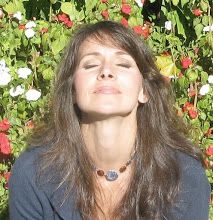I’ve been thinking about what puzzles teach us about writing.
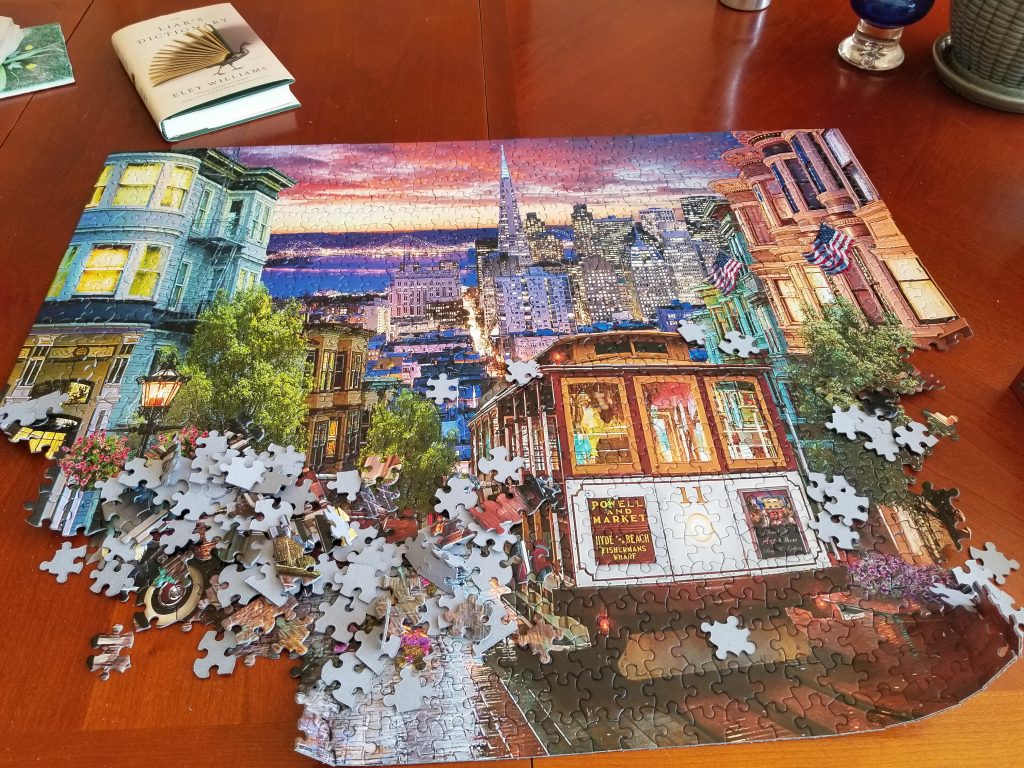
Why?
As part of my return to health, I’m spending time each day relaxing. That has meant choosing activities that bring me pleasure and nurture my inner child, like doing puzzles.
The Gifts of Puzzling
The more I puzzle, the more I appreciate the many gifts they offer: Puzzles give me a new way of looking at my environment. Over time, I see how time spent puzzling can make us keener observers of the world around us. I especially find that scenic puzzles (a cafe in Switzerland, a cottage in the English countryside, birds on a wire fence in a field) sharpen such skills.
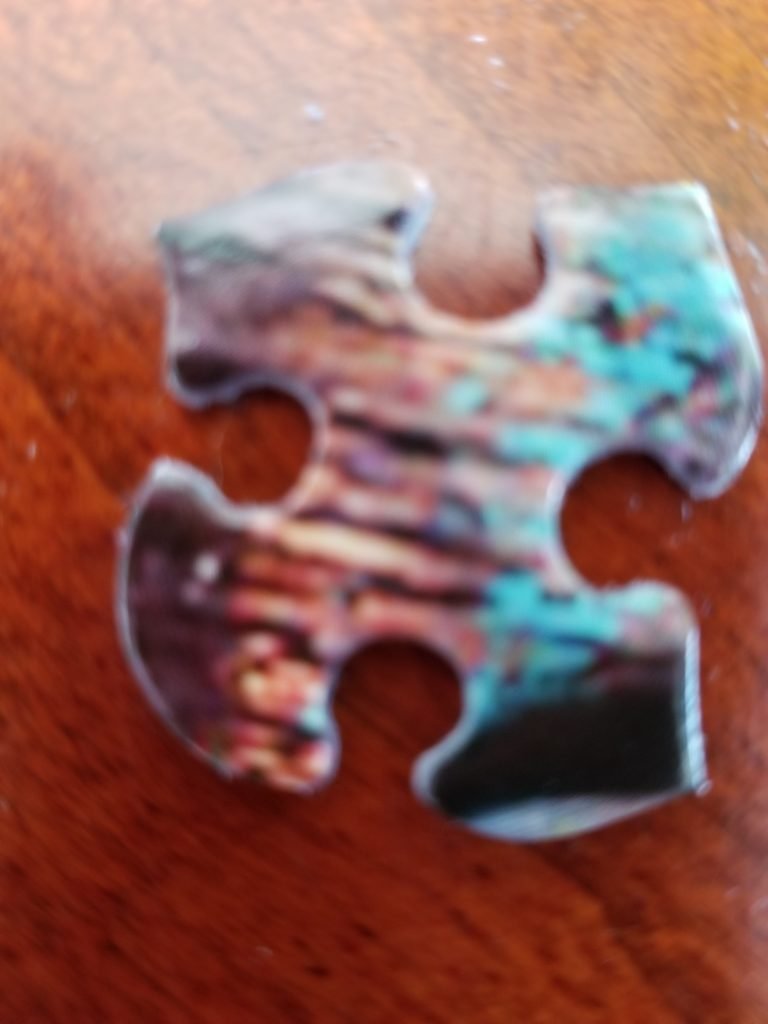
- I enjoy colors and moods that once may have seemed bland—yesterday’s fog, which may have once seemed boring, evokes a sense of deep mystery. I discover more variations of green than I ever imagined. I appreciate the reds, purples and blues within a sea of brown twigs and dead grasses.
- I now see stone walls in my neighborhood as both the whole and the sum of parts in all their exquisite detail—the colorful lichen, odd shaped rocks that somehow fit together, the shades and shadows they form,
- Looking to place or find a puzzle piece, I notice shapes, tiny details, things I wouldn’t have seen before: a spec of turquoise at the end helps me realize that the piece either fits in the puddle by the Bentley or the cable car tracks. The thin white line across the gray background places it near the bottom of the road. The yellow within the tree leaves indicates the piece belongs near the lamp light on the right and not in the shadow on the left. The shade of green goes here, not there.
- Puzzles turn off my over-thinking brain and put me in another part of my brain altogether—and that feels soothing.
- Puzzles bring back memories of rainy summer days with my siblings and friend in Waterside, New Brunswick, Canada, near Fundy National Park.
How Puzzles Improve Our Writing
I’m certain my brain forms new connections and fires differently as I pick up new skills from puzzling. My writing becomes more precise.
Here are a few more lessons from puzzling:
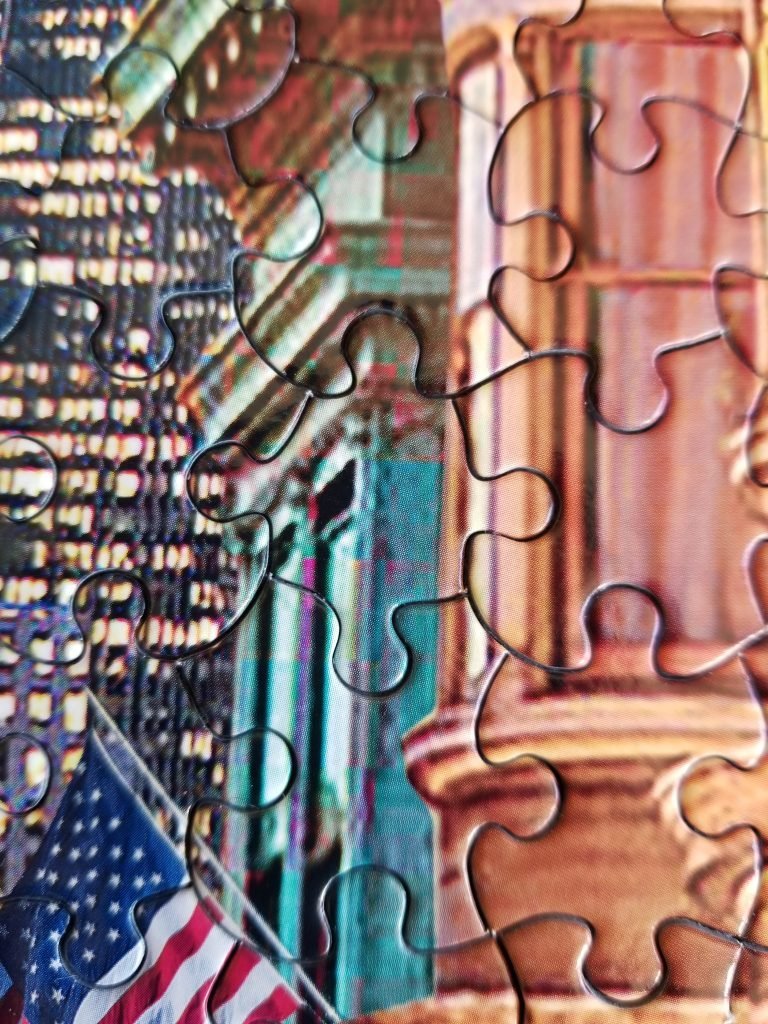
- Observe: Be on the lookout for fresh details.
- Connect: Allow your brain to naturally connect the big picture and small details without having to think about them. Be open to how your mind can make intuitive and subconscious connections without your having to work at it.
- Find The Sweet Spot: not too easy, not too hard. A good puzzle offers enough clues to be able to work it out without getting frustrated, yet the puzzle still challenges you. Writers lesson: Don’t confuse your reader or obfuscate your meaning with overly complex sentence structure, jargon or garbled chapters. Yet, don’t necessarily spell everything out for your reader to the point of spoon-feeding her. Find that sweet spot that requires her to think, imagine and connect the dots.
- Variety evokes emotion, mood and makes things more interesting. A good puzzle offers enough variety to both helped the puzzler solve the puzzle and find enjoyment in the details. Many good puzzles offer a wide variety of colors – gradations of blue in the sky or even a sunset or sunrise; a variety of greens in the grasses, trees and other vegetation; colors appear in a puddle, a machinery part; the peeling paint of an old Victorian apartment building. In writing, you have many choices for variety: You can vary the pace or sentence length, for example. Can you break up action and description with dialogue? Dialogue with action? How about adding or an experiential exercise in a self-help chapter? Give your readers multiple ways to experience the teachings.
- Identify a source of light: I find a good puzzle often has a source of light – the sun, lamp lights, a candle—to create shadows and highlights and show the contrast of light and dark. When you write about a difficult subject, be sure to buoy your readers with a source of light, too: humor, beauty and moments of transcendence go a long way towards supporting your reader on the journey.
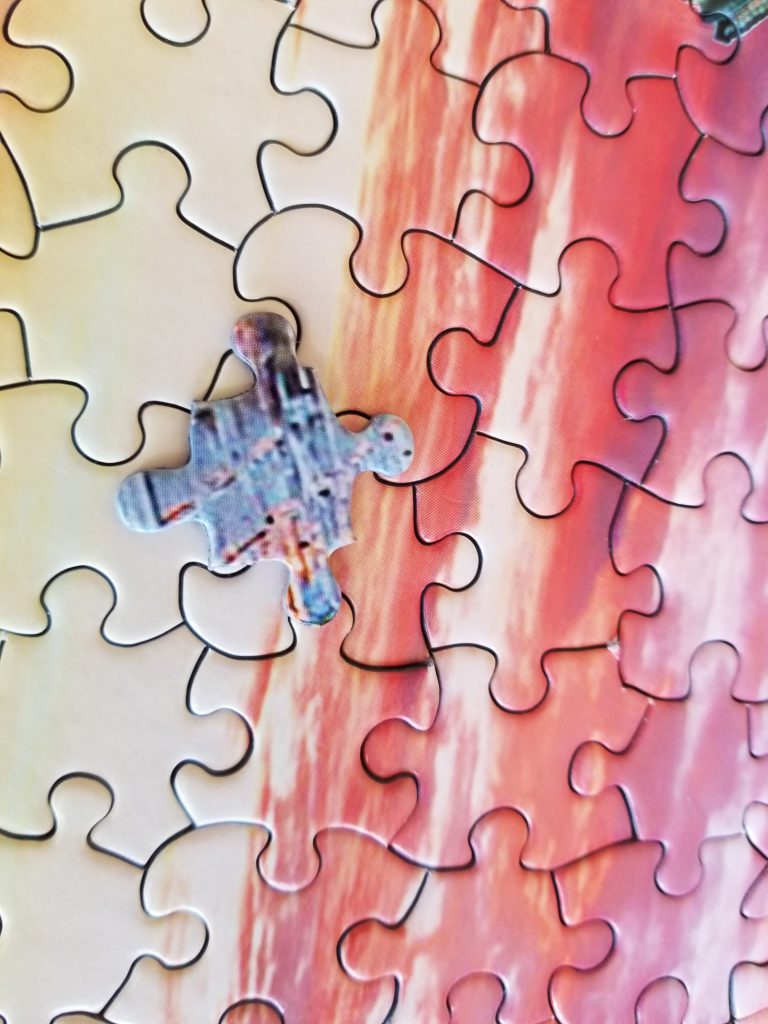
6. Balance the images you create in your writing by using contrasts: shadow and light, contrasting colors, contrasting characters and stories.
7. Satisfaction and New Perspective: As my freind Paula points out, there is the wonderful satisfaction in finding a match you’ve been troubling over for some time, much like the joy of finding “le bon mot.” And completing a blog post or manuscript can also offer the new perspectives similar to those one finds in completing a puzzle.
Have you ever used an activity like puzzling to heighten your powers of observation or provide perspective?
Look for New Adventures in Seeing
I started this post yesterday and received a new puzzle that evening, a birthday present from my assistant Geri. This new puzzle defied many of the rules I just applied—no source of light, no contrasts. This is a work of modern art by the artist Charlie Hopper. And now, I get excited again. It’s a beautiful puzzle. I know it will reveal itself in even more splendor as I immerse myself in its details.
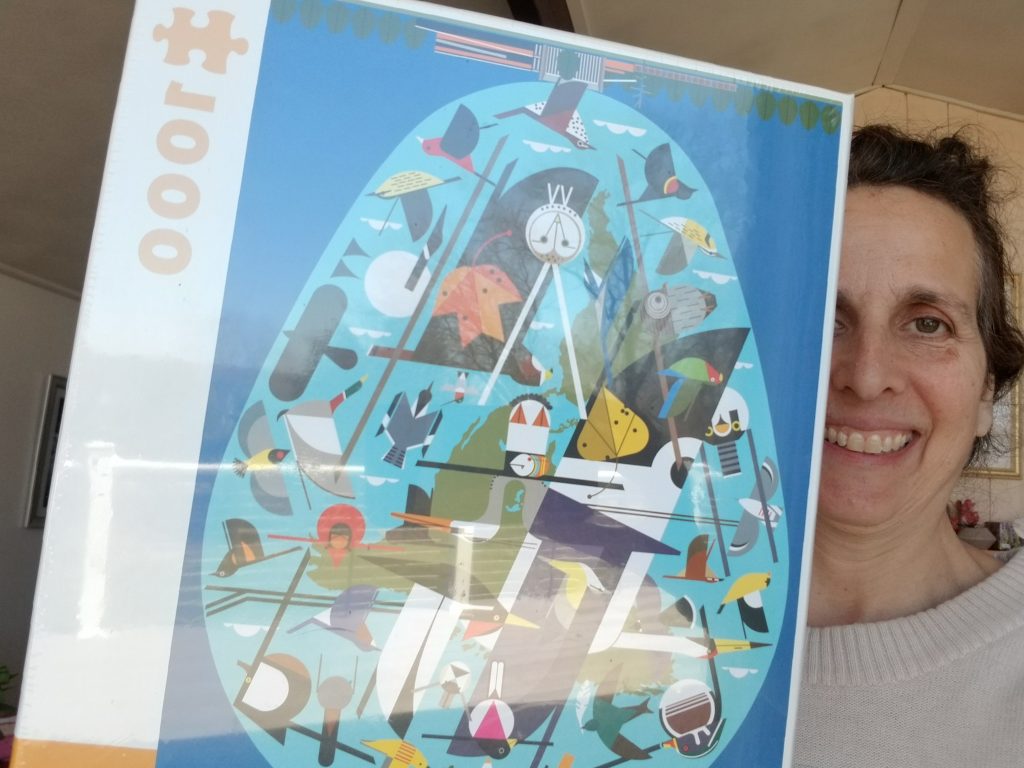
I look forward to the new lessons I will learn and discovering how I can apply them to my writing.
What’s Your Experience With Puzzling And Other Hobbies?
- What else can puzzling teach us about writing?
- What activities or hobbies have informed your writing and what lessons have you drawn from them?
Share your experiences below as a comment.


